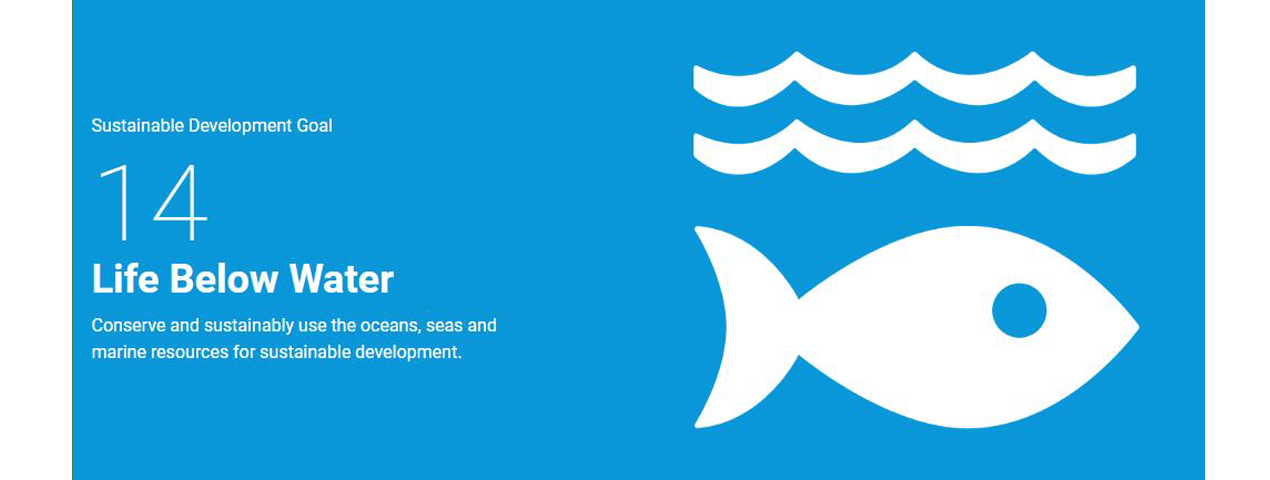
SDG 14 is to: "Conserve and sustainably use the oceans, seas and marine resources for sustainable development". The current efforts to protect oceans, marine environments and small-scale fishers are not meeting the need to protect the resources. One of the key drivers of global overfishing is illegal fishing. It threatens marine ecosystems, puts food security and regional stability at risk, and is linked to major human rights violations and even organized crime. Increased ocean temperatures and oxygen loss act concurrently with ocean acidification and constitute the "deadly trio" of climate change pressures on the marine environment.
The first seven targets are "outcome targets": Reduce marine pollution; protect and restore ecosystems; reduce ocean acidification; sustainable fishing; conserve coastal and marine areas; end subsidies contributing to overfishing; increase the economic benefits from sustainable use of marine resources. The last three targets are "means of achieving" targets: To increase scientific knowledge, research and technology for ocean health; support small scale fishers; implement and enforce international sea law.
Oceans and fisheries support the global population's economic, social and environmental needs. Oceans are the source of life of the planet and the global climate system regulator. They are the world's largest ecosystem, home to nearly a million known species. Oceans cover more than two-thirds of the earth's surface and contain 97% of the planet's water. They are essential for making the planet livable. Rainwater, drinking water and climate are all regulated by ocean heat content and currents. Over 3 billion people depend on marine life for their livelihood. However, there has been a 26 percent increase in acidification since the industrial revolution. Effective strategies to mitigate adverse effects of increased ocean acidification are needed to advance the sustainable use of oceans.
Life Below Water Policy


.svg)
